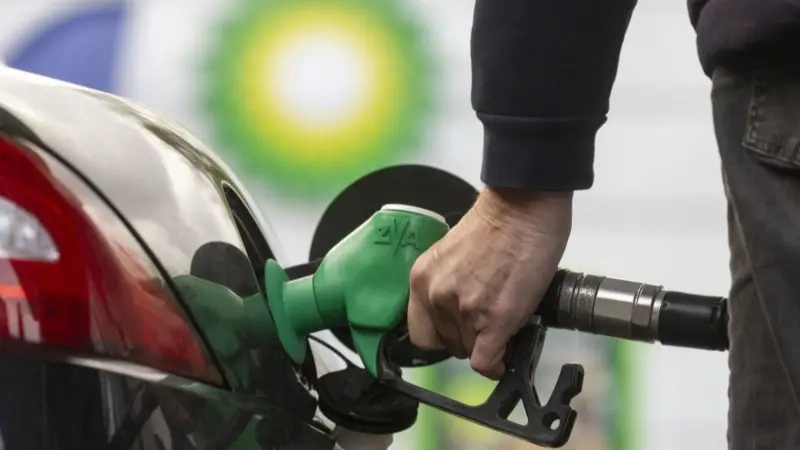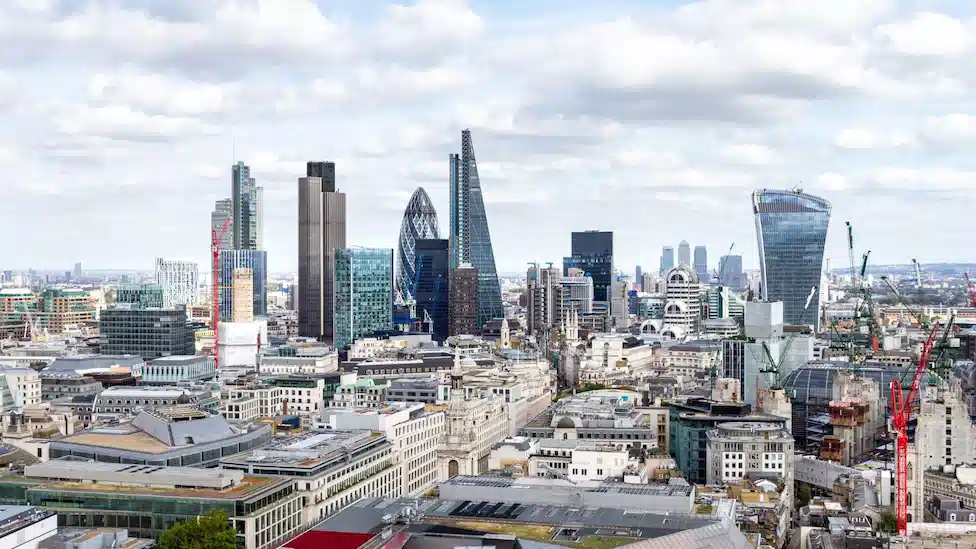UK Inflation Trend Drops Again: The UK inflation trend dropped for the second month in a row, reaching 2.6% in March 2025. This data, released by the Office for National Statistics (ONS), showed a sharper-than-expected fall, mainly due to falling petrol prices.
Economists had predicted a slight decline to 2.7%, but the actual drop signals easing pressure on household budgets. The fall is the lowest inflation rate since December. Government officials and economic commentators are following closely, as this shift can affect the interest rate policy of the Bank of England over the next few months.
Also Read | European Stock Markets Surge as Trump Delays Tariffs on EU
UK Inflation Trend Drops Again: Insights
- The Consumer Prices Index (CPI) inflation rate dropped to 2.6% in March.
- Fuel prices were a major factor behind the decline.
- Economists had expected a rate of 2.7%, but the drop was steeper.
- Food prices remained steady compared to last year.
- Clothing prices rose, reversing a drop in February.
- Interest rate cuts may happen soon, starting as early as May.
- The BoE is expected to lower rates twice more in 2025.
- Some experts warn inflation could rise again by summer.
- Drivers may see lower petrol and diesel prices at the pump.
- Government measures like wage increases and fuel duty freezes are in effect.
Background
Inflation in the UK has been a major concern since 2022. High energy costs, global supply issues, and political uncertainty have pushed prices up. Over the last year, the Bank of England raised interest rates to curb spending and slow inflation. However, by early 2025, fuel prices started falling, easing pressure on consumers.
This shift helped pull inflation down. The UK inflation trend has been steadily declining since January, giving hope to families facing high living costs. Economists and businesses are now waiting to see if the decline will last.
Main Event
The Office for National Statistics verified that the UK inflation rate dipped to 2.6% in March 2025. This is from a lower 2.8% in February and a record low since December. The drop was primarily attributed to the fall in petrol prices, which followed a worldwide reduction in oil prices.
Food prices did not move compared to the same period last year. Clothes prices, however, increased rapidly after an abnormal decline in February.
ONS Chief Economist Grant Fitzner said inflation dropped due to a range of factors, including steady food prices and lower fuel costs. But he also noted that rising clothing prices partially offset those benefits.
Chancellor Rachel Reeves also hailed the news, describing it as proof the government’s economic strategy is paying off. She cited wage growth, rising minimum wages, and fuel duty freezes as major backing for families.
The RAC suggested fuel prices could fall further if retailers pass on the savings. Oil prices dropped from over $80 in January to under $70 in March, leading to hopes of cheaper travel costs for drivers.
Experts now believe the Bank of England will cut interest rates in May. Some even expect two more cuts later in 2025. However, some economists warn that inflation could rise again due to energy price hikes and tax changes in April 2025.

Falling fuel prices contribute to UK inflation decline, offering relief for households and businesses amid economic uncertainty.
Photo Credits: Getty Images.
Also Read | LVMH Stock Drop Shakes Luxury Sector as Hermes Briefly Takes Lead in Market Value
Implications
The drop in inflation brings short-term relief for consumers and businesses. Lower fuel and stable food prices reduce everyday expenses. Families struggling with the cost of living may feel a slight ease. Businesses also benefit, as lower inflation can boost spending.
The government sees it as progress in its economic plan. For the Bank of England, the shift supports a likely rate cut in May. However, economists caution that this may not last.
If inflation rises again, the central bank may hesitate on further cuts. The UK inflation trend could still impact mortgage rates, which depend on market forecasts rather than just the base rate.
Conclusion
The current fall in the UK inflation trend is promising, but experts urge caution. April’s price resets and energy cost increases could push inflation back up.
The Bank of England’s rate cut in May now seems likely, but future moves depend on how the economy reacts. While families enjoy short-term relief, long-term stability is still uncertain. All eyes are now on the next inflation report.



